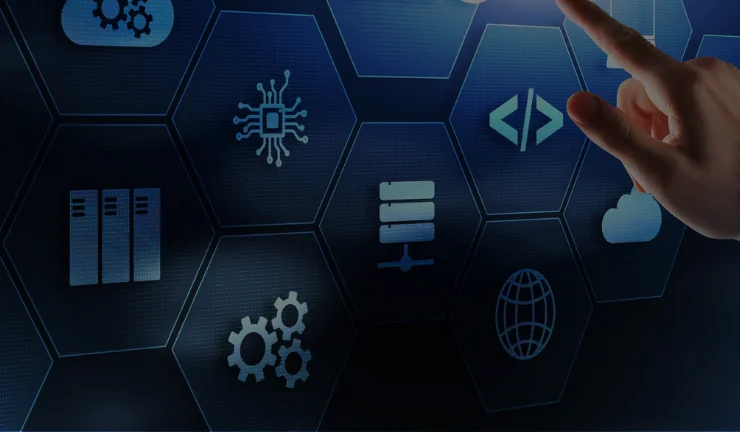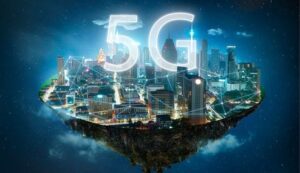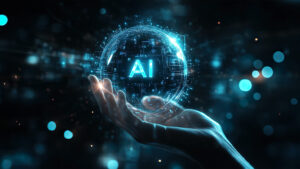
As we move closer to 2025, technology continues to evolve at a rapid pace, shaping the way we live, work, and interact with the world around us. In this article, we will explore the top 10 emerging technologies that are expected to have a significant impact on various industries, from healthcare to entertainment. These technologies represent the cutting edge of innovation, and understanding their potential can provide valuable insights into the future.
1. Quantum Computing
Quantum computing is poised to revolutionize industries by solving problems that traditional computers cannot handle efficiently. Unlike classical computers, which use bits to process information as either 0 or 1, quantum computers use quantum bits (qubits) that can exist in multiple states simultaneously. This ability allows them to process massive amounts of data at incredible speeds, opening new frontiers in areas like cryptography, drug discovery, and climate modeling. By 2025, quantum computing could be in the hands of researchers and businesses, accelerating breakthroughs in fields that require complex calculations.
2. Augmented Reality (AR) and Virtual Reality (VR)
Augmented Reality (AR) and Virtual Reality (VR) are set to transform how we interact with digital content. AR overlays digital elements onto the physical world, enhancing user experiences in real-time, while VR immerses users in fully virtual environments. Both technologies are already being used in gaming, entertainment, and training simulations. In 2025, we can expect AR and VR to become more integrated into everyday life, with applications in education, healthcare, remote work, and retail. For instance, AR might be used to display real-time data in healthcare settings, while VR could enable virtual classrooms and meetings.
3. Web3 and Blockchain
Web3 is the next evolution of the internet, characterized by decentralization, blockchain technology, and user empowerment. Unlike Web2, which is dominated by centralized platforms, Web3 enables peer-to-peer interactions and ownership of digital assets without the need for intermediaries. Blockchain, the underlying technology behind cryptocurrencies, will play a key role in ensuring transparency and security in Web3 applications. By 2025, we are likely to see wider adoption of decentralized applications (dApps), cryptocurrency, and smart contracts across various sectors, from finance to supply chain management.
4. Biotechnology and Genetic Engineering
Biotechnology is advancing at a rapid pace, with innovations in genetic engineering and gene editing techniques, such as CRISPR, offering the potential to revolutionize medicine and agriculture. By 2025, gene therapies could be widely used to treat genetic disorders, and advancements in synthetic biology could lead to breakthroughs in personalized medicine and bio-manufacturing. Additionally, biotechnology has the potential to improve food production, with genetically modified crops offering greater resistance to pests and climate change.
5. Artificial Intelligence (AI) and Machine Learning
Artificial Intelligence (AI) continues to evolve, with machine learning algorithms becoming more sophisticated and capable of performing tasks that were once thought to require human intelligence. AI is already being used in a variety of industries, including healthcare (for diagnostics and drug development), finance (for predictive analytics and fraud detection), and transportation (for autonomous vehicles). By 2025, AI will be even more integrated into daily life, with advancements in natural language processing, computer vision, and autonomous decision-making systems. AI-powered tools will be crucial in improving productivity, enhancing customer experiences, and driving innovation.
6. 5G Connectivity
The rollout of 5G networks is set to revolutionize the way we connect to the internet. With speeds up to 100 times faster than 4G, 5G will enable a new era of connectivity, making it possible for devices to communicate with each other in real-time. This will have a profound impact on industries like IoT (Internet of Things), autonomous vehicles, and smart cities. In 2025, the widespread adoption of 5G will enable faster data transfer, lower latency, and better connectivity, empowering new applications in fields such as remote surgery, virtual reality, and industrial automation.
7. Robotics and Automation
Robotics and automation are transforming industries by increasing efficiency, reducing costs, and improving safety. In manufacturing, robots are already performing repetitive tasks such as assembly and packaging. However, by 2025, advancements in robotics will lead to more autonomous robots capable of performing complex tasks in industries like healthcare, logistics, and agriculture. Autonomous delivery drones, robot-assisted surgery, and robotic farming equipment are just a few examples of how robotics will reshape industries in the coming years.
8. Renewable Energy Technologies
As the world seeks to combat climate change, renewable energy technologies are becoming increasingly important. Solar, wind, and geothermal power are at the forefront of the transition to a cleaner, more sustainable energy future. In 2025, we can expect further advancements in energy storage, efficiency, and grid integration, making renewable energy sources more reliable and cost-effective. New technologies such as perovskite solar cells and offshore wind farms will play a significant role in meeting global energy demands while reducing carbon emissions.
9. Edge Computing
Edge computing is a distributed computing model that brings data processing closer to the source of data generation, such as IoT devices. By reducing the distance between the data source and processing power, edge computing can lower latency, improve efficiency, and enable real-time decision-making. As more devices become connected through the Internet of Things (IoT), edge computing will become essential in industries such as healthcare, manufacturing, and autonomous vehicles. By 2025, edge computing will play a crucial role in managing the vast amounts of data generated by connected devices.
10. Neurotechnology and Brain-Computer Interfaces
Neurotechnology is a rapidly developing field that focuses on the interaction between the brain and technology. Brain-computer interfaces (BCIs) are one of the most exciting applications, allowing users to control devices using their thoughts. In 2025, BCIs could be used for a wide range of applications, from aiding individuals with disabilities to enhancing cognitive abilities in healthy individuals. Neurotechnology also holds promise for advancing fields like mental health treatment, neuroscience, and human augmentation.
Conclusion
The technologies outlined above represent just a glimpse into the future of innovation that will shape our world by 2025. From quantum computing to brain-computer interfaces, these advancements have the potential to revolutionize industries, improve quality of life, and address some of the world’s most pressing challenges. Staying informed about these emerging technologies will not only help businesses and individuals stay competitive, but also provide a glimpse of the future that awaits us.






